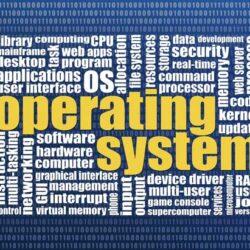The tobacco industry is a behemoth, raking in nearly 35 billion dollars in profit every year. It’s a colossal industry, but beneath its glossy exterior lies a sinister secret – the illicit trade of tobacco products. This blog post delves into the murky world of tobacco smuggling and uncovers the influential role played by major tobacco companies in shaping the tracking systems designed to combat this illegal trade.

The Power Players: Big Tobacco
The tobacco industry is dominated by four major companies: Philip Morris International, British American Tobacco, Imperial Tobacco, and Japan Tobacco. Collectively known as “Big Tobacco,” these giants have been in business for over a century, and their influence is staggering.
Lobbying for Survival
The tobacco industry is no stranger to controversy. Smoking is a leading cause of preventable deaths worldwide, and governments have implemented various policies to curb the habit. To safeguard their businesses, Big Tobacco has resorted to extensive lobbying, spending between 20 and 30 million dollars annually in the U.S. alone.
The Excise Tax Battle
One effective tobacco control policy is the implementation of excise taxes, which target suppliers rather than consumers, resulting in increased product prices. However, Big Tobacco argues that these taxes increase the risk of smuggling. They claim that distributors would purchase cheaper products in other countries and smuggle them into high-tax regions. But is this argument valid?
Unmasking Big Tobacco’s Role in Smuggling
Shocking reports reveal that Big Tobacco is not just aware of tobacco smuggling; they actively participate in it. Nearly two-thirds of smuggled tobacco products are traced back to these industry giants. They have faced fines and accusations in various smuggling cases, but they continue to deflect blame onto governments.
A Glimpse into History
Governments began to scrutinize Big Tobacco’s smuggling activities in the late ’90s. However, individual countries acted independently until May 2003 when the Framework Convention on Tobacco Control (FCTC) treaty emerged under the World Health Organization’s guidance.
The FCTC and Illicit Trade Protocol (ITP)
The FCTC treaty united countries under a common framework to combat tobacco’s demand and supply. A significant aspect of this treaty was the Illicit Trade Protocol (ITP), which required signatory countries to develop tracking and tracing regimes for tobacco products.
Codentify: Big Tobacco’s Tracking Solution
Faced with increasing scrutiny, Philip Morris took the initiative and developed Codentify. This technology involved printing two unique codes on each product packet. However, critics argue that Codentify lacks security features.
The Lobbying Game
Big Tobacco wasn’t content with just developing Codentify; they wanted governments to adopt it. They invested heavily in lobbying efforts to make Codentify the leading tracking solution, sidelining alternative proposals such as enhanced tax stamps.
Creating Front Groups
To lend legitimacy to Codentify, Big Tobacco created front groups like the Digital Coding and Tracking Association (DCTA). Interpol was one of their key targets, with reports of significant funding provided by Philip Morris. However, the DCTA’s legitimacy was short-lived.
The Dubious Codentify Sale
In a shady deal, the DCTA sold Codentify to a company called Inexto for a mere one Swiss franc. Inexto’s personnel had close ties to Philip Morris, raising questions about its independence. Philip Morris publicly denied any control over Inexto, but skepticism lingers.
Current State of Affairs
Codentify now appears to be a key component of the European Union’s track and trace plan. Critics argue that it hasn’t improved the fight against tobacco smuggling. Recent reports also suggest that Big Tobacco’s involvement in smuggling continues.
Conclusion
The tobacco industry’s influence on tracking systems aimed at combating illicit trade raises serious concerns. To effectively tackle tobacco smuggling, we must remove major tobacco players from decision-making processes and hold them accountable for their actions. Only then can we hope to make progress in curbing the dark underbelly of the tobacco industry – a world of illicit trade that impacts not only economies but human lives and international conflicts as well.






